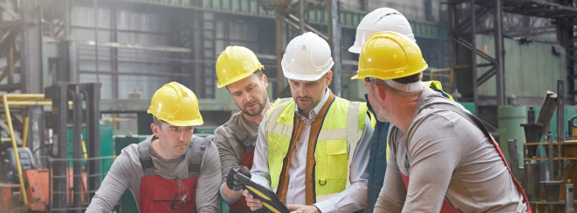
MODULAR CONSTRUCTION
Transforming the Future of Building in Today's Society
In today's rapidly evolving society, where efficiency, sustainability, and innovation are paramount, modular construction has emerged as a transformative force in the realm of building and architecture. This innovative construction method is proving itself essential in meeting the challenges of our modern world. As we navigate urbanization, environmental concerns, and the need for rapid development, modular construction offers a solution that resonates with the demands of the 21st century.
Efficiency Redefined
One of the most significant advantages of modular construction lies in its unparalleled efficiency. Traditional construction processes are often plagued by delays due to adverse weather conditions, labor shortages, and unexpected setbacks. Modular construction takes a revolutionary approach by bringing the construction site indoors. Factories are transformed into hubs of innovation, where building components are fabricated with precision, quality assurance, and minimal waste.
The assembly line-style production ensures that each module is created under controlled conditions, resulting in consistent quality across all units. This efficiency translates to shorter construction timelines, allowing projects to be completed in a fraction of the time it takes for conventional construction. This swift turnaround not only reduces financial burdens but also accelerates the delivery of much-needed infrastructure, from homes to hospitals, in our rapidly growing cities.
Sustainability at Its Core
In an era marked by a heightened focus on sustainability, modular construction aligns perfectly with our environmental aspirations. The manufacturing process involves meticulous planning, which optimizes the use of materials and minimizes waste. This contrasts with traditional construction methods, which often lead to excessive resource consumption and construction-related pollution.
Furthermore, modular construction's reduced construction time contributes to lower energy consumption and less disturbance to the surrounding environment. The controlled manufacturing process enables architects and engineers to incorporate eco-friendly technologies seamlessly, from energy-efficient HVAC systems to renewable energy sources. In this way, modular construction not only minimizes its environmental impact but also pioneers sustainable design practices that can inspire the broader construction industry.
Reshaping Urbanization
As urbanization continues to reshape the global landscape, the need for rapid and efficient construction solutions becomes increasingly urgent. Modular construction offers an answer to the ever-growing demand for housing, office space, and infrastructure in urban centers. With the ability to replicate module designs, developers can create uniform, scalable structures that fit seamlessly into urban environments.
Additionally, the reduced disruption associated with on-site construction benefits both urban residents and businesses. Noise, dust, and traffic congestion, often synonymous with construction projects, are significantly diminished, fostering a more harmonious coexistence between construction and city life.
Driving Innovation and Affordability
Modular construction's embrace of technology and innovation has the potential to democratize architecture and construction. With the capacity for design standardization, modular construction makes high-quality architecture accessible to a wider audience. This affordability, coupled with the shorter construction timelines, empowers individuals and organizations to realize their projects without straining their budgets or enduring prolonged construction periods.
Moreover, the controlled manufacturing environment encourages the integration of cutting-edge building materials and technologies, such as smart home systems, energy-efficient insulation, and advanced structural elements. As modular construction becomes the norm, the exchange of ideas and best practices among manufacturers can catalyze a cycle of continuous improvement and innovation, pushing the boundaries of what's possible in construction.
In conclusion, In our rapidly evolving society, where time, resources, and environmental consciousness are at a premium, modular construction emerges as a beacon of innovation. Its efficiency, sustainability, and adaptability make it a vital tool for addressing the challenges of today and tomorrow. As the construction industry continues to embrace modular techniques, we can look forward to a future where our built environment mirrors our aspirations for a better, more sustainable world.